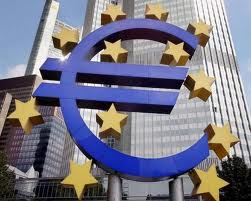Standard & Poor’s mass ratings downgrade of euro zone members today is not good news for Kiwi exporters, according to TVNZ.
Nine of the EU’s 17 members (excluding Germany) received downgrades, including formerly AAA-rated France.
This new crisis means Kiwi exporters could be facing a miserable start to 2012, the report said.
Following the news, the euro initially dropped by a cent against the US dollar and the Kiwi dollar is soaring against all its major trading partners, heading for an unprecedented 63 cents against the euro.
For those selling to overseas markets, the situation is “really tough”, Bernard Hickey was quoted telling TVNZ.
“Those people exporting into Europe will really struggle at those sorts of rates,” said Hickey, of interest.co.nz.
“But if you’re an importer – you want to buy a Merecedes or a Porche – then now’s the time to do it.”
Whether the downgrade has any further effect on New Zealand is uncertain but it is worth remembering that less than 10% of our exports go to Euro zone countries, said Hickey.
He adds that we are much more reliant on China and Australia.
“However, if there is a real meltdown in those bond markets that transfers into the banking system in Europe, then we need to keep an eye on it because New Zealand is a debtor country. We do borrow a lot from the rest of the world.
“If those markets blow up in Europe, that will increase the cost of funding for that debt and that may be passed onto us in the form of higher mortgage rates,” he said.
S&P said policymakers had not done enough to address the crisis and were even overlooking a key cause of the problem: sharp differences in economic competitiveness among countries that use the euro.
“As such, we believe that a reform process based on a pillar of fiscal austerity alone risks becoming self-defeating, as domestic demand falls in line with consumers’ rising concerns about job security and disposable incomes, eroding national tax revenues,” the agency said.
While S&P gave higher grades to the European Central Bank for sustaining market confidence through emergency lending to euro zone banks, it said political initiatives thus far “may be insufficient” to address the crisis.
The mass downgrade follows S&P’s decision last August to strip the United States of its top credit rating, a move it also chalked up, at least partly, to political stalemate – namely, lawmakers’ inability to agree on ways to cut the budget deficit.
European leaders, including Germany’s Angela Merkel, have urged countries to tighten their belts with higher taxes and deep spending cuts to rein in massive budget deficits. But that has heightened market concern about their ability to grow their way back to health, pushing borrowing costs even higher for heavily indebted governments.
“In our view, it is increasingly likely that refinancing costs for certain countries may remain elevated, that credit availability and economic growth may further decelerate and that pressure on financing conditions may persist,” S&P said.
European leaders are set to meet at a summit later this month to discuss how to boost growth and jobs.
At a summit on December 9, EU leaders secured agreement on drafting a new treaty for deeper economic integration in the euro zone, but the chances for more decisive measures to stem the debt crisis remain uncertain.
France and Austria both saw their top AAA ratings cut one notch to AA-plus, while Malta, Slovakia and Slovenia also suffered one-notch downgrades.
S&P dropped the credit ratings of Italy, Portugal, Spain and Cyprus by two notches.
The agency reaffirmed the ratings on seven other euro zone countries, including Germany. But it said that of the 16 countries reviewed, all save Germany and Slovakia have negative outlooks, meaning more downgrades are possible in the next couple of years. French Finance Minister Francois Baroin played down the impact of the move, saying it was “not a catastrophe.” More at TVNZ




